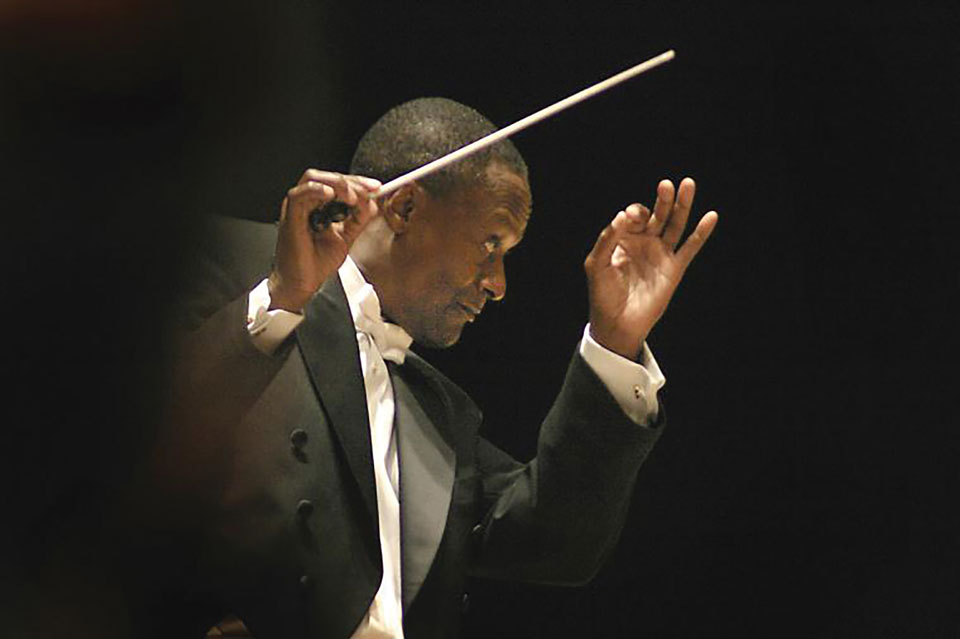Q&A with Thomas Wilkins
by Franck Mercurio
How do you begin to curate a program like American Life, which seeks to shine a spotlight on important composers who may not have received the attention they should, due to historic biases?
My main objective is to demonstrate the wide variety of compositional styles. It is also important to me that audiences, through multi-generational presentations, get a sense of the rich history of these composers. Audiences are often surprised to learn that people of color have been writing music for centuries.

The canon of orchestral works is massive and continues to expand, thanks to many active composers creating new works. As a conductor, how do you forge collaborations with composers, and what qualities do you look for?
I am always interested in composers who have a keen sense of orchestration and orchestral writing in general. I also endeavor to make sure these composers get heard on multiple occasions in a variety of settings. This is the only real way to assure this repertory becomes a part of the standard canon.
You will be conducting pianist Louis Schwizgebel in a number of concerts this season with different orchestras. What draws you to Schwizgebel’s artistry? What makes for a good working relationship between soloist and conductor?
Louis is first and foremost a terrific human being. That for me is always the most important part of a relationship. In addition, he brings a humility to this music and a true desire to collaborate. When an artist demonstrates that this music is greater than we are, I’m all in.
You previously conducted the Cincinnati Pops in a New Year’s Eve concert celebration. What were your impressions of Cincinnati and what are you most looking forward to in the Queen City?
That was such a quick trip, I didn’t get to see much. I did enjoy, however, how warm and welcoming the audience was. I felt a true sense of community and belonging in that room.